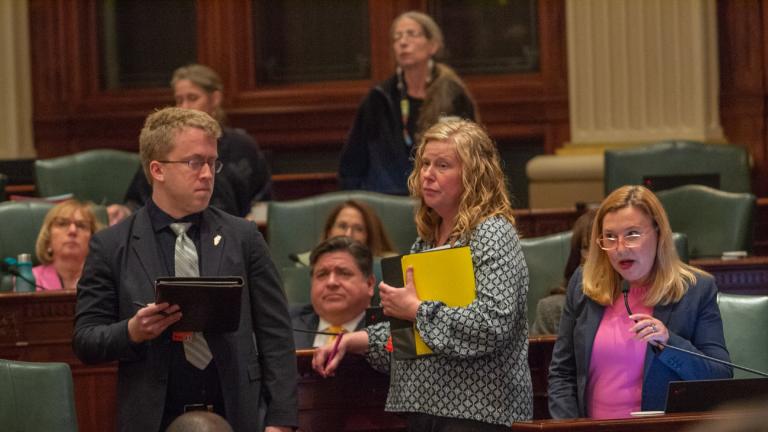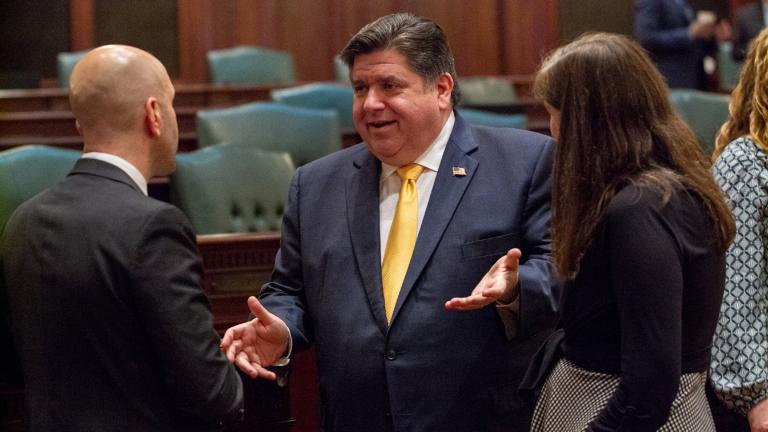 Illinois State Capitol. (WTTW News)
Illinois State Capitol. (WTTW News)
If the threat of prison, fines and a ruined reputation isn’t enough, Illinois politicians have another reason not to criminally abuse their office.
A state law (HB351 / Public Act 103-0562) will mean they’ll also lose their job.
The new statute forbids officials convicted of “a felony, bribery, perjury or other infamous crime” from holding local or state level elected positions.
Illinois already prohibits anyone convicted of felonies or “infamous crime” from holding local office, be it mayor, alderman or school board.
But until now, only voters at the ballot box could prevent someone convicted of such a crime from becoming a state legislator or even governor.
(Illinois has no control over the federal law, which governs who can serve in Congress and the White House).
The policy only covers offenses committed by those holding office starting from when Gov. J.B. Pritzker signed it into law just days ago, so while there’s no indication that former House Speaker Michael Madigan plans to resurrect his political career, should he be found guilty following his April trial on charges related to alleged abuse of his powerful position, this law wouldn’t stop him from trying.
The measure’s sponsor, state Rep. Curtis Tarver, a Chicago Democrat, said those “fortunate enough to be elected” should be held to a “higher standard.”
“If fortunate enough to be elected, if you commit certain types of crimes, you can’t run for office again,” Tarver said. “Given that we continue to see people hauled off to the Dirksen building (the federal courthouse) … this will hopefully dissuade folks from stepping across that line.”
While limits are getting stricter for state officials, the same law could help to clear hurdles for future aspiring politicos.
A task force – Tarver hopes he’ll be among the lawmakers appointed to it – is charged with examining “what criminal conduct precludes a person from holding public office” in Illinois right now, and to recommend what conduct should preclude someone.
“Because we bar you based on the office you seek and not the type of crime, I want to get folks together to look at certain types of crimes,” Tarver said. “If you are someone who has committed embezzlement, we don’t want you in an office where you directly handle money.”
But Tarver said it’s worth examining whether the state’s municipal code is too prohibitive with its deeming anyone with a felony ineligible for a locally elected position.
“I’m thinking about someone who is 18, 19,” Tarver said. “Folks who maybe get in a bar fight, something like that. Or you stole someone’s laptop or purse in college. Why, 20, 30, 40 years later are you still unable to run for any municipal office?”
The task force must include at least two formerly incarcerated people as well as a couple members of the Illinois Sentencing Advisory Council.
Its research and recommendations for possible changes to state law are due in May of 2025.
The new law also frees notaries from having to keep a journal of nominating petitions and petitions of candidacy they’d notarized, a recent requirement added to state law that was wiped off the books before it could take effect, after notaries said would be too onerous. Tarver said the state’s election code already contains various petition checks, making another layer of record-keeping unnecessary.
Follow Amanda Vinicky on Twitter: @AmandaVinicky








